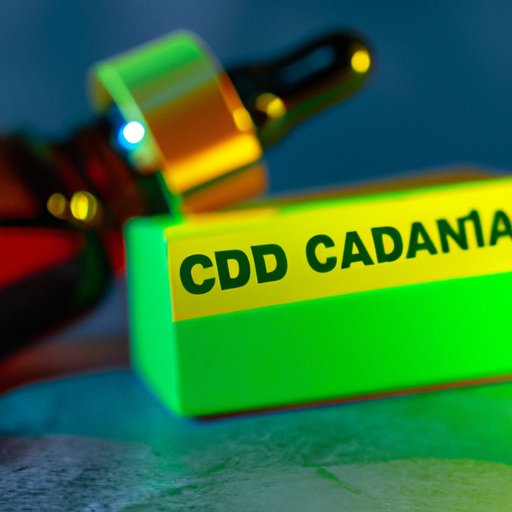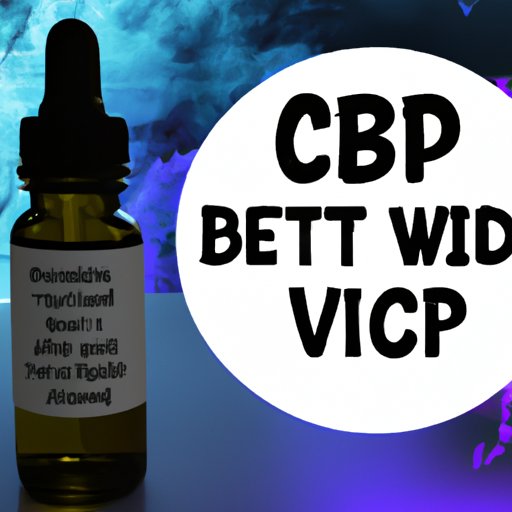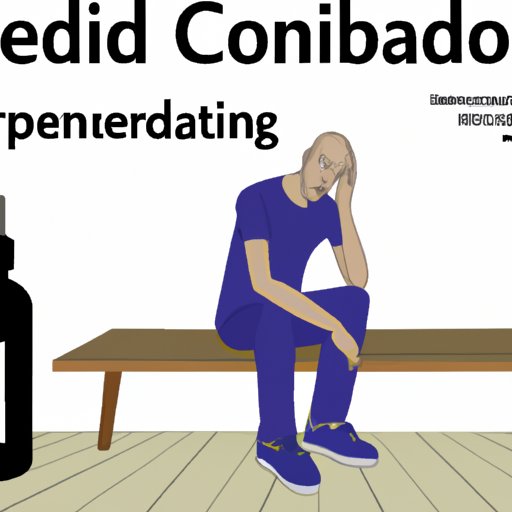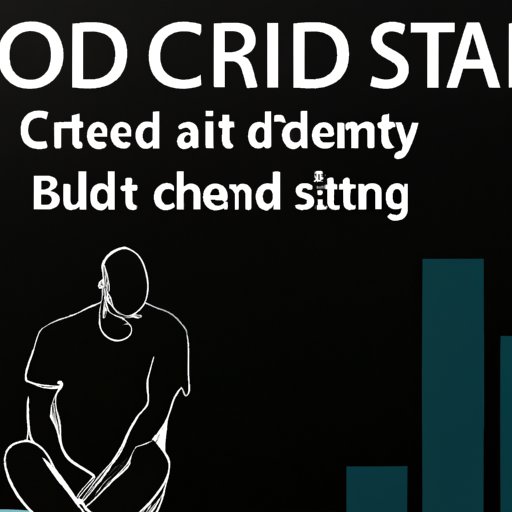I. Introduction
CBD, short for cannabidiol, is a natural compound found in the cannabis plant. It has gained popularity in recent years as a potential treatment for anxiety, depression, and other mental health conditions. Many people with these conditions seek out CBD because it does not have the psychoactive effects of THC, the compound in cannabis that produces a “high.”
While CBD can be effective for some people, it may not be the best choice for everyone and may even worsen symptoms in certain cases. In this article, we will explore the potential risks and side effects of using CBD for anxiety and depression.
II. The Potential Risks of Using CBD for Anxiety and Depression: A Closer Look
Research into how CBD affects the brain and body is still in its early stages, but we do know that it interacts with the endocannabinoid system, which regulates a wide range of physiological processes including pain, inflammation, and mood. When introduced into the body, CBD can have both positive and negative effects.
One potential risk of using CBD for anxiety and depression is that it can interact with other medications, including prescription drugs, over-the-counter medications, and dietary supplements. CBD can inhibit the activity of an enzyme called CYP450, which is responsible for metabolizing many drugs. When CYP450 is less active, medications can build up in the bloodstream and cause adverse effects.
Another potential risk is that CBD can cause liver damage. A study conducted in 2019 found that high doses of CBD in mice were associated with liver toxicity. While this study used extremely high doses of CBD that are unlikely to be seen in human use, it does suggest that there may be a risk of liver damage with prolonged use or high doses of CBD.
Finally, there is still limited research on the effectiveness of CBD for anxiety and depression. While some studies have shown promising results, others have yielded inconclusive or even negative results. It is important to note that everyone’s experience with CBD is different, and what works for one person may not work for another.
III. When CBD Isn’t the Right Choice for Anxiety and Depression Patients
Even if CBD is generally safe and effective for many people with anxiety and depression, it may not be the right choice for everyone. There are individual differences in brain chemistry and genetic factors that can influence how someone responds to CBD. In some cases, people may not experience the same benefits as others, or they may have negative side effects.
When this happens, it is important to consider alternative therapies and medications for anxiety and depression. There are many options available, including talk therapy, cognitive-behavioral therapy, and medications such as selective serotonin reuptake inhibitors (SSRIs) and benzodiazepines.
IV. Can CBD Actually Worsen Your Anxiety and Depression?
While CBD is generally well-tolerated, there are some cases where it may actually worsen symptoms of anxiety and depression. This seems to be more common in people who have a history of anxiety or panic attacks, or who are particularly sensitive to THC.
One study published in 2019 found that CBD could increase anxiety and paranoia in some people. The researchers suggested that this might be due to individual differences in how the brain responds to CBD, and that some people may need different dosages to achieve positive effects without negative side effects.

V. CBD and Mental Health: The Dark Side of This Popular Trend
As CBD has gained popularity as a treatment for anxiety and depression, it has also become a booming industry. However, this industry is still largely unregulated, meaning that it can be difficult for consumers to know exactly what they are getting when they purchase CBD products.
There have also been concerns raised about the claims made by CBD companies, and the potential for marketing tactics to be misleading or exploitative. Some companies have been criticized for making exaggerated claims about the efficacy of their CBD products, or for targeting vulnerable populations such as veterans or people with mental health conditions.
Finally, there is some concern that the long-term effects of CBD use on mental health are still not fully understood. While CBD may help alleviate symptoms of anxiety and depression in the short-term, there is some speculation that prolonged use could lead to a dampening of emotional responsiveness, or even worsen symptoms over time.

VI. Why Some People Should Avoid Using CBD for Anxiety and Depression
Given the potential risks and the uncertain long-term effects of CBD use for anxiety and depression, it is important for individuals considering CBD to speak with their healthcare professionals and closely monitor their symptoms. Some people should avoid using CBD altogether, including pregnant or breastfeeding individuals, and people with liver or kidney disease.
For those who do decide to use CBD, it is important to choose a reputable brand and product, and to start with a low dose and gradually increase it as needed.

VII. Unintended Consequences: How CBD May Make Anxiety and Depression Symptoms Worse
In addition to the risks and side effects of CBD discussed above, there are some cases where CBD may actually make symptoms of anxiety and depression worse. This could occur if CBD interacts negatively with other medications a person is taking, or if a person has an underlying medical condition that interacts negatively with CBD.
It is important to work with a healthcare professional when considering CBD use, particularly if you are taking other medications or have a pre-existing medical condition.
VIII. Conclusion
While CBD has potential as a treatment for anxiety and depression, it is not without risks and side effects. It is important for individuals considering CBD to do their research, speak with their healthcare professionals, and monitor their symptoms closely. CBD may not be the right choice for everyone, and there may be alternative therapies and medications that are more effective in certain cases. Remember to be cautious and informed when using any new treatment for mental health.
